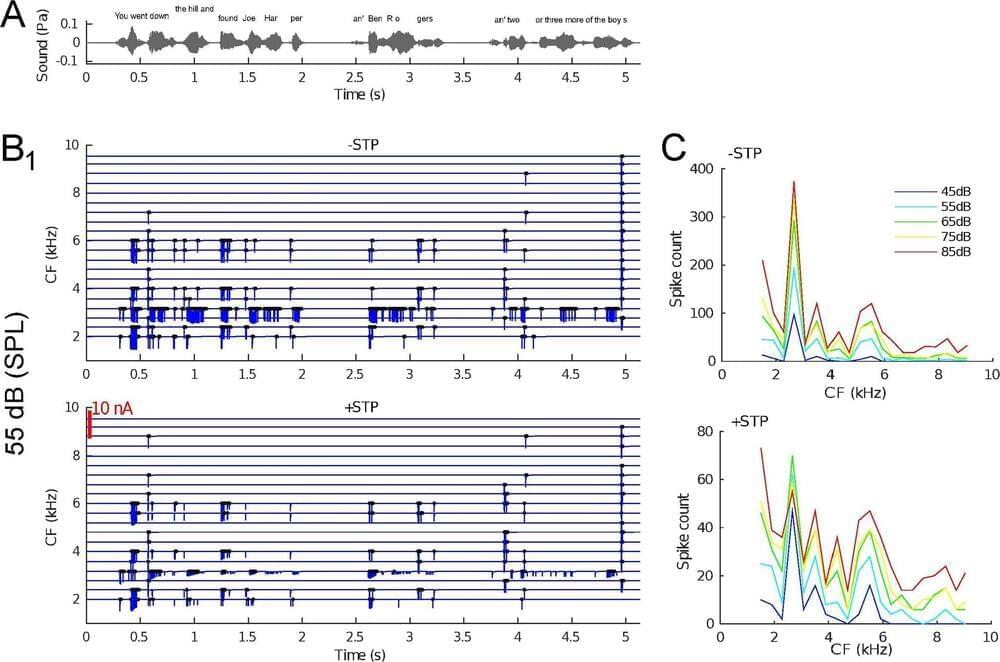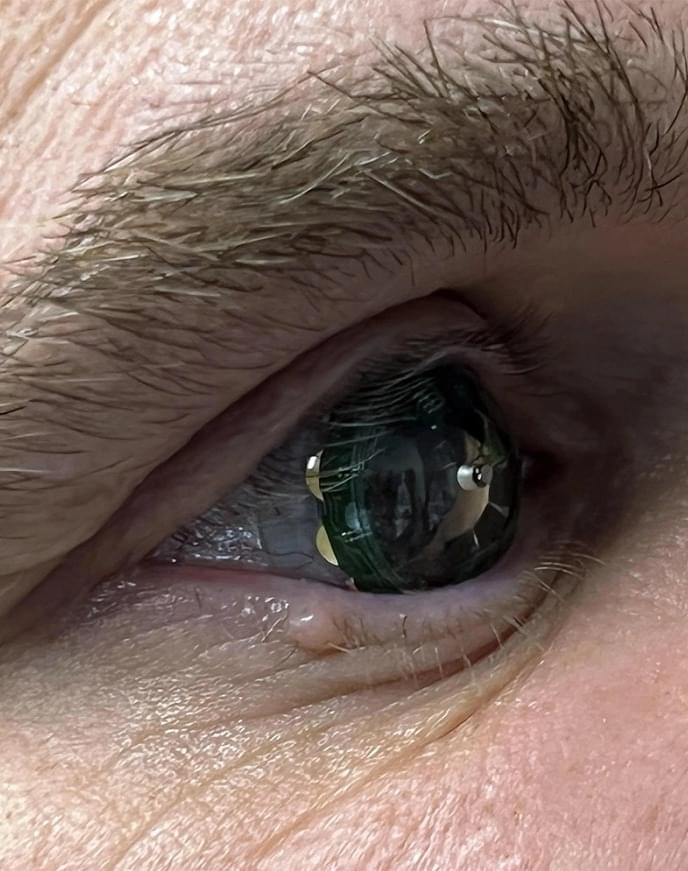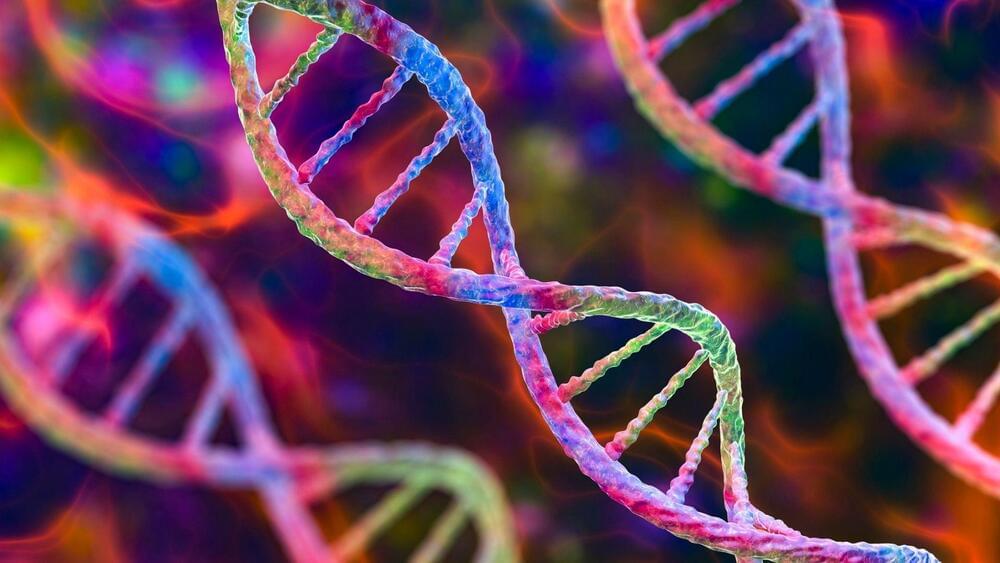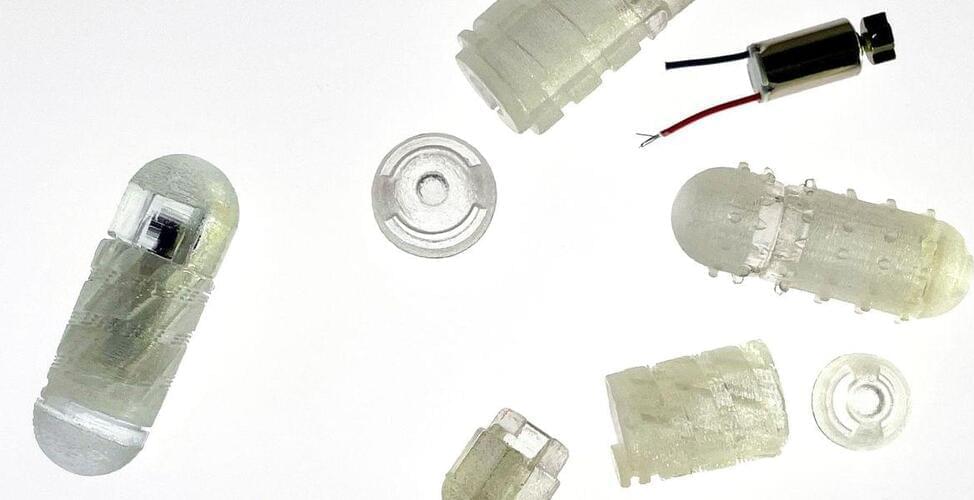
Category: biotech/medical – Page 1,561


This is an Augmented Reality contact lens
Mojo Vision CEO Drew Perkins is the first human being to put them on.
“After completing preclinical testing and mitigating potential safety risks, I wore Mojo Lens,” Perkins wrote in a blog post. “Much to my delight, I found I could interact with a compass to find my bearings, view images, and use an on-screen teleprompter. Seeing the future literally put me at a loss for words.”
Mojo Vision is now ready to conduct the clinical trials needed to secure FDA approval for the tech — and ultimately, give you super vision.
#alzheimers #science #Brain #dentist #dentistry #oralhealth #disease #alzheimersawareness #alzheimerscare #health #Wow #amazing
798 views, 6 likes, 1 comments, 18 shares, Facebook Reels from The Neuro-Network.

Florida sees surge in deadly bacterial infections post-Hurricane Ian
Florida is reporting a surge in deadly infections caused by the bacteria Vibrio vulnificus in the aftermath of Hurricane Ian.
Driving the news: Lee County alone has recorded 29 cases and 4 deaths as of Friday, according to Florida’s Department of Health. The state’s overall numbers have risen to 65 cases and 11 deaths, compared to 34 cases and 10 deaths in 2021.
Details: Found in warm, brackish water, Vibrio vulnificus usually enters human bodies through the consumption of raw or undercooked seafood, though it can also cause infections through open wounds, according to the Centers for Disease Control and Prevention.


Colloidal crystals can change their shape and have memories thanks to DNA, research suggests
The crystals are significantly larger than any that have ever been created previously.
A hitherto unknown characteristic of colloidal crystals, highly organized three-dimensional arrays of nanoparticles, has been discovered by Northwestern University researchers very recently.
According to Northwestern University’s release, similar to the natural structures found in chameleon skin and butterfly wings, DNA-engineered colloidal crystals demonstrate shape-shifting and structural memory.

A new AI model can predict human responses to drug compounds, transforming medicine
It’s more affordable and effective.
City College of New York’s new AI model will be able to predict accurately human response to novel drug compounds. Moreover, it is less costly and faster. Published in Nature Mature Intelligence.
According to research, the new CODE-AE model can screen brand-new medication molecules and reliably forecast their effectiveness in people. In tests, it was also able to find potentially more effective tailored medications for over 9,000 patients.
Luckystep/iStock.
Published in Nature Mature Intelligence on October 17, this technique might significantly speed up precision medicine and medication development.


Robopill Drills Through Mucus to Deliver Drugs
Anosmia, or the inability to smell, can be caused not only by head injuries but also by exposure to certain toxins and by a variety of medical problems—including tumors, Alzheimer’s, and viral diseases, such as COVID. The sense of smell also commonly atrophies with age; in a 2012 study in which more than 1,200 adults were given olfactory exams, 39 percent of participants age 80 and above had olfactory dysfunction.
The loss of smell and taste have been dominant symptoms of COVID since the beginning of the pandemic. People with COVID-induced anosmia currently have only three options: Wait and see if the sense comes back on its own, ask for a steroid medication that reduces inflammation and may speed recovery, or begin smell rehab, in which they expose themselves to a few familiar scents each day to encourage the restoration of the nose-brain nerves. Patients typically do best if they seek out medication and rehab within a few weeks of experiencing symptoms, before scar tissue builds up. But even then, these interventions don’t work for everyone.
In April 2020, researchers at VCU’s smell and taste clinic launched a nationwide survey of adults who had been diagnosed with COVID to determine the prevalence and duration of smell-related symptoms. They’ve followed up with those people at regular intervals, and this past August they published results from people who were two years past their initial diagnosis. The findings were striking: Thirty-eight percent reported a full recovery of smell and taste, 54 percent reported a partial recovery, and 7.5 percent reported no recovery at all. “It’s a serious quality of life issue,” says Evan Reiter, director of the VCU clinic.

Scientists Solve an Origin of Life Mystery
Researchers from the Universities of Cambridge and Cape Town may have found a solution to the mystery of how phosphorus came to be an essential component of life on Earth by recreating prehistoric seawater containing the element in a laboratory.
Their findings, which were published in the journal Nature Communications.
Nature Communications is a peer-reviewed, open access, multidisciplinary, scientific journal published by Nature Research. It covers the natural sciences, including physics, biology, chemistry, medicine, and earth sciences. It began publishing in 2010 and has editorial offices in London, Berlin, New York City, and Shanghai.